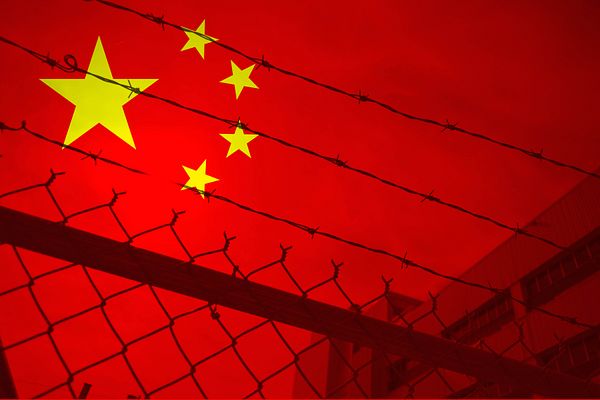Is China a graveyard for foreign envoys?
In the midst of all sorts of controversies, ranging from being accused of stealing unclassified
technologies from the US to burdening the poor and vulnerable countries with loans to violating
human rights of Tibetans and Uighurs Muslims, China is battling with an avoidable accusation
of being a graveyard for foreign envoys.
After the sudden death of Myanmar’s ambassador to China U Myo Thant Pe this year on
August 7 in the southwestern Chinese city of Kunming, Beijing has come under spotlight for
the wrong reason as this was the fourth death of the head of missions since last year. The
Myanmar’s Foreign Ministry’s obituary for ambassador U Myo Thant Pe did not specify the
cause of his death. He was appointed Myanmar’s ambassador to China in 2019 and stayed put
there even after the junta took power in a coup in February 2021.
German ambassador Jan Hecker, Ukraine ambassador SerhiiKamyshev and Philippines envoys
Jose Santiago Chito Sta–all died in harness in China, making the Middle Kingdom a dangerous
host for foreign envoys.
In the history of international diplomacy, ambassadors and high commissioners have often
fallen victims to motivated killings and personal ailments. Since 2000, as per an estimate, a
total 13 foreign envoys, including China’s ambassador to Israel Du Wei met with
deaths. While the majority of deaths were caused by gunshots, the death of as many as four
ambassadors due to unknown reasons in China and that too within a span of 12 months has
created an unease in the diplomatic circle.
Worse, it has not yet been known how German envoy to China, Jan Hecker, 54, suddenly died
only a few weeks after taking up his ambassadorial assignment in Beijing on August 24, 2021.
The German Foreign Ministry had made it clear that there was no evidence to suggest that Jan
Hecker’s death was linked to his ambassadorship. “Based on the circumstances of the death,
we have no indication that Jan Hecker’s passing was related in any way at all to his professional
role as German ambassador in Beijing,” Heiko Maas, the then Foreign Minister of Germany
was quoted by DPA news agency as saying.
However, Jan Hecker was not the first German Ambassador to die in China. Clemens Von
Ketteler was Germany’s envoy in Beijing, who was killed by Boxer rebels on June 20, 1900.
The Boxer rebellion was an anti-foreign, anti-colonial uprising in China between 1899 and
1901, towards the end of the Qing dynasty.
But mystery still shrouds Ukrainian ambassador SerhiiKamyshev’s death. The 64-year-old
envoy died before his return to Beijing last year on February 14 from a trip to the Winter
Olympics site in Zhangjiakou, a prefecture-level city in north-western Hebei province,
bordering Beijing. He was among more than 30 envoys who had made a trip to the Winter
Olympics site.
Tweeting on the Ukrainian ambassador’s death on February 19, 2021, Wall Street Journal’s
China-based correspondent Chun Han Won said, “People familiar with the matter said Amb.
Kamyshev died just before returning to Beijing from a trip to the Zhangjiakou Winter Olympics
Site, which was arranged by China’s Foreign Ministry and games organisers. Chinese Foreign
Minister Wang Yi played host.”
The Chinese Foreign Ministry press release on the trip, issued on February 14, last year, said
the trip featured envoys and senior diplomats from more than 30 countries. It did not mention
the Ukrainian envoys name among those who visited the Winter Olympics Site last year. With
this, an element of secrecy attached with ambassador Kamyshev’s death, has not yet been
cleared. More than one year has passed since ambassador Kamyshev died, not much details are
there about him in the press, except for a brief obituary write up issued by the Ukrainian
embassy on February 14, last year.
“Being an example of professionalism Mr SerhiiKamyshev has inspired many Ukrainian
diplomats who, having adopted his experience and knowledge, work in responsible positions
within the system of the Ministry of Foreign Affairs of Ukraine. The Embassy of Ukraine in
China grieves deeply over the death of H.E Ambassador SerhiiKamyshev and extends its
sincere condolences to his family and relatives,” the Ukrainian embassy in China said in a press
note issued on February 19, 2021.
More than 50 ambassadors lost their lives while working in different countries in between the
beginning of the 20th century and August 7, 2022. Of them, a total of 14 died in the Asian
region, five of them in China alone. And every death has left behind a trail of unanswered
questions.
For instance, Philippines envoys Jose Santiago Chito Sta, 74, passed away this year on April
19 when he was in mandatory quarantine in a hotel in eastern China’s Anhui province, where
he had attended a dialogue along with visiting Philippine Foreign Affairs Secretary Teodoro
Locsin Jr. and Chinese Foreign Minister Wang Yi. Months have passed since the Philippine
ambassador expired, neither Manila nor Beijing has spoken about the cause of death of Jose
Santiago Chito Sta. According to Nikkei Asia, he died in the city of Huangshan, where he had
been completing his 21-day quarantine after returning from the Philippines.
Although there is no concrete evidence to prove the reason for four foreign ambassadors’
demise in China, it has all happened when the Middle Kingdom is battling with Covid-19 virus.
Even today several cities in Guangdong, Hubei, Xinjiang, and others are either under full or
partial lockdowns. An impartial and detailed investigation could only suggest the true cause of
foreign ambassadors’ death in China. However, there is an irrefutable truth: it is not easy for
foreign envoys to work in Beijing. “A Japanese diplomat was detained for some hours on
February 21, 2022 trampling the legal principle of diplomatic immunity,” the Economist said.
The British weekly newspaper said the Japanese diplomat was arrested after he had lunch with
a Chinese citizen at a hotel restaurant in Beijing.













